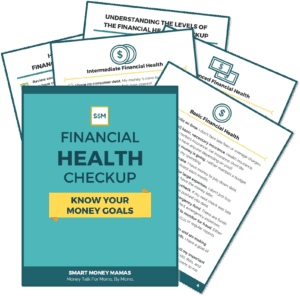As of 2016, despite an almost 8-year growth market, only 1 in 3 millennials are investing in the stock market. There are a variety of reasons for this, including distrust of Wall Street and the weight of student loans, but the two-thirds of millennials who weren’t invested missed out on a +65% return in the market over the past five years. Unfortunately, you can’t go back and invest your savings in 2012. But you can get started today.
So how do you get started in long-term investing if you have never done it before? What accounts do you need, what funds should you put in those accounts, and how should you choices differ for various end goals? Today, we will talk through the basics of opening an investment account and getting started!
Table of Contents
Is your savings account enough?
The short answer is, no. A savings account is great for any cash you may need to spend in the near term, such as emergency funds or near term (<2 year) savings goals. However, over the long term, a high-interest savings account will maybe cover inflation, but it won’t grow your wealth. The only way to make your money work for you and build wealth is to invest it in the market. Ever heard the phrase “the rich get richer”? Yeah, that is because their money makes money.
Where do you start?
Well, if all you have is a savings account, the first step would be to open an investment account with a low fee provider. There are a couple sources available, but Vanguard is my personal favorite. Fidelity and Schwab also offer low-cost funds, but they do offer actively managed, higher fee funds as well so you have to be more careful if you choose to go with them. For sake of simplicity, I am going to walk through the rest of this post as if you are using Vanguard.
Signing up
Sign up for a new Vanguard account. Depending on your goals, there are a number of different account types. Vanguard has a good tool within the “Need help deciding” button to help you choose an account, but, in general, this part isn’t too confusing.
- Saving for Retirement? If your main goal is to save for retirement, and you meet the income limits (<$118K for a single tax filer, <$186K for a married filer), you should open a ROTH IRA. Otherwise, open a Traditional IRA.
- Saving for other goals? Open an individual account, or joint account if you are married.
Once you have one account, you can add another to the same login. I have a Rollover IRA, Joint Account, and 529 College Account for Fuss Fish all in my Vanguard.
Linking your bank account
You can fund your new Vanguard account via check or direct deposit from your bank. I recommend linking your bank account so you can set up automatic deposits into your investment funds monthly to make investing more of a habit. This also takes advantage of dollar cost averaging.
Choosing funds
Once you have your investment account, you will have to choose which funds you will invest your money in. This is the part that can get scary as you’ll have over 100 mutual funds and over 50 ETFs (Exchanged Traded Funds) to choose from – don’t panic! Especially early on in your investing life, this isn’t too hard. The best choices for you will depend on your goals and risk tolerance (see our post on Asset Allocation), but we can boil it down.
- Retirement: If you are new to investing and only saving for retirement (ROTH or Traditional IRA), I would recommend choosing a Target Date Retirement fund. This will give you a full portfolio in one fund – managing your asset allocation for you and shifting it as you get closer to retirement.
- Target Date funds are created for every 5 years (2040, 2045, 2050, etc). Choose the fund that is closest to your expected retirement year and you’ll be all set.
- House/car/longer term goals: If you are saving for a defined expense that is 3-5 years or more in the future – house downpayment, paying for your next car with cash, a yearlong sabbatical traveling the world – I would use a LifeStrategy Fund . They operate very similarly, with similar fee levels, to the Target Date Retirement funds in that they manage your asset allocation for you and offer you a fully diversified portfolio within one fund.
- Building wealth/general investing: If you don’t have debt and are on track for saving for retirement, you may be looking to start investing to grow your net worth, generate income through dividends, or learn more about the market. You have more choices available to you if this is the case, as you can afford to leave the money in the market for the long term. You can allocate to a Growth LifeStrategy fund as referenced above if you don’t want to think about asset allocation or investing in multiple funds. But, you can also look at ETFs, which trade like individual stocks and don’t have fund minimums, but offer you the diversity of an index fund, with slightly lower fees.
- Good ETFs to consider for newbies:
- Dividend Appreciation ETF: This is a good fund if you are looking to generate income from your investments. This ETF is invested in companies that have a history of increasing their dividend year over year.
- Total Stock Market ETF: This is a good fund to get you access to the equity markets with a very low fee base.
- FTSE Developed Markets ETF: This is a good fund if you want to invest in foreign markets (Europe, Asia). This fund is not in “emerging markets”, i.e. countries that are in earlier stages of development so potentially growing faster.
- A note on bond ETFs: I personally prefer bond mutual funds over bond ETFs, especially at Vanguard where the fund fees aren’t that different. ETFs need to be traded on a regular basis and many bonds aren’t liquid enough to do that, so ETFs are limited to the largest players in the index. Mutual funds have access to a greater number of bonds and better represent the debt indices.
- Good ETFs to consider for newbies:
Once you’ve set the funds you want to invest in, you can set automatic rules so that the money you automatically deposit each month gets split between your choices. Then all you have to do is leave your investments alone for the long haul and let compound interest work its magic! Good luck!
How did you start investing? What investment products do you use? Let us know!




